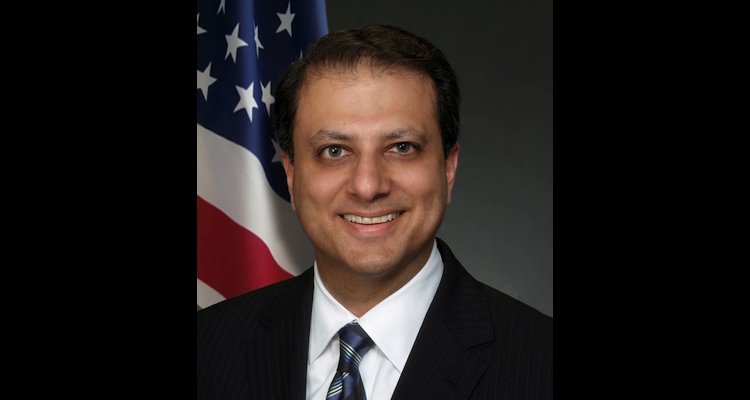Preet Bharara, the U.S. Attorney in the Southern District of New York who brought the poker industry to its knees and permanently altered the landscape of the online gambling industry in what has now become known as the Black Friday indictments, now has his sights set on the daily fantasy sports industry (DFS).
On the heels of news that the US Department of Justice and the Federal Bureau of Investigation are talking a closer look at the DFS industry, according to industry reports, Bharara’s office is investigating whether companies like FanDuel and DraftKings violate the 2006 Unlawful Internet Gambling Enforcement Act. The investigation is thought to be in the early stages and currently doesn’t appear to be focused on any particular company. It will examine the skill vs chance argument. Most states’ gambling laws are antiquated and state by state deal with the skill-chance continuum; some distinguish by something being predominantly chance or chance on any level.
While it has yet to be determined if DFS violates the federal gambling law, violation of a New York law would be sufficient to implement the federal Illegal Gambling Business Act (IGBA). That is the same strategy evoked by the US Attorney’s office in Tampa, Florida currently investigating the matter. An IGBA violation might hinge on Section 225.00 of New York’s Penal Law, which prohibits profiting “any contest, game [or] gaming scheme … in which the outcome depends in a material degree upon an element of chance, notwithstanding the skill of the contestants may also be a factor therein.”
In light of the weeks-long controversy that has rocked the fantasy sports industry, DFS execs might be more than a little concerned by Bharara’s involvement. One parallel of the Black Friday indictments includes the claim that DFS is a game of skill therefore not considered illegal gambling, which is the same argument used by the online poker companies prosecuted by Bharara in 2011. That settlement resulted in Poker Stars having to pay $547 million to resolve charges against the company and repay customers.
Regardless of the current state of the investigation, news of Barahara’s involvement is sure to fuel negative attention by the mainstream media on daily fantasy, which has focused on industry leaders FanDuel and DraftKings. The storm began last month when an employee of DraftKings won $350,000 in a FanDuel contest after inadvertently posting data from DraftKings which could possibly give an unfair advantage to an employee playing on a competitor’s site. Both companies quickly banned their employees from participating on any daily fantasy site. An internal investigation by DraftKings hired law firm Greenberg Traurig, confirmed that the employee did not access the information prior to his FanDuel lineup being locked in. However, there is probably little doubt that the inundation of advertising by both of the companies’ has played a role in bringing the uber-successful startups under regulatory scrutiny.


